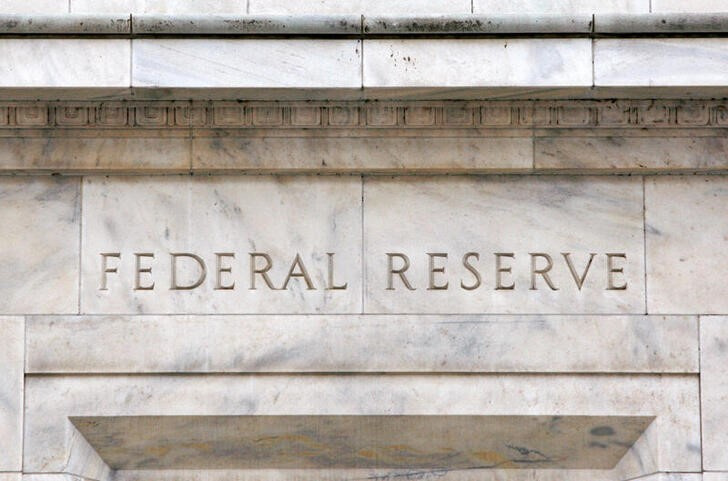By Yasin Ebrahim
Investing.com -- Bank borrowing from the Federal Reserve’s discount window and new lending program eased last week pointing to early signs that banks have weathered the turmoil from recent bank failures.
In the week ended Apr. 12, banks borrowed an average of $67.6 billion each night, down from $69.7B from a week earlier, according to new Fed data released Thursday.
Borrowing from the Fed’s Bank Term Funding Program, the new emergency lending program launched following the collapse of Silicon Valley Bank – eased to $71.8B from $79.02B in the prior week.
It’s the first week since the collapse of SVB where the discount window and Bank Term Funding Program each declined, pushing the Fed's balance sheet assets to $8.615 trillion, down $17.6B from the prior week.
The cutback in borrowing from the Fed’s emerging lending programs to $139.5B from $148.7B last week, points to signs, albeit nascent, that turmoil in the banking sector has somewhat eased, though remains from far over.
The data offers further evidence that banks have weathered the storm of deposit runs for now, Jefferies said in a note Thursday, but cautioned that banks "are far from being out of the woods and many will struggle to operate profitably if they are funding themselves through these Fed facilities."
Investors are keeping close tabs on further distress in the banking system at a time when many expect that tightening lending standards will derail the economy and likely force the Fed to pivot from rate hikes to cuts.
The minutes of the Fed’s March meeting, released on Wednesday, showed that developments in the banking sector are weighing heavy on the Fed’s thinking on monetary policy.
In the midst of the recent banking crisis, many participants lowered “their assessments of the federal funds rate target range that would be sufficiently restrictive,” the minutes showed.
Data earlier this week, meanwhile, showed that small businesses were starting to feel the impact from recent bank failures as banks rein in lending, which some believe raises the chances of a recession.
“Small businesses account for a little under half of total employment, so a collapse in lending to these firms raises the chances that the economy slips into recession,” Pantheon Macroeconomics said in a note.
A net 9% of owners who borrow frequently described financing difficulties compared with three months earlier, the most since December 2012, the National Federation of Independent Business survey showed Tuesday.
Still, the wave of earnings from Wall Street banks due Friday is expected to provide fresh insight into deposit flows and loan growth.
JPMorgan Chase & Co (NYSE:JPM), Citigroup Inc (NYSE:C), and Wells Fargo & Company (NYSE:WFC) will report quarterly results before the opening bell on Wednesday.
